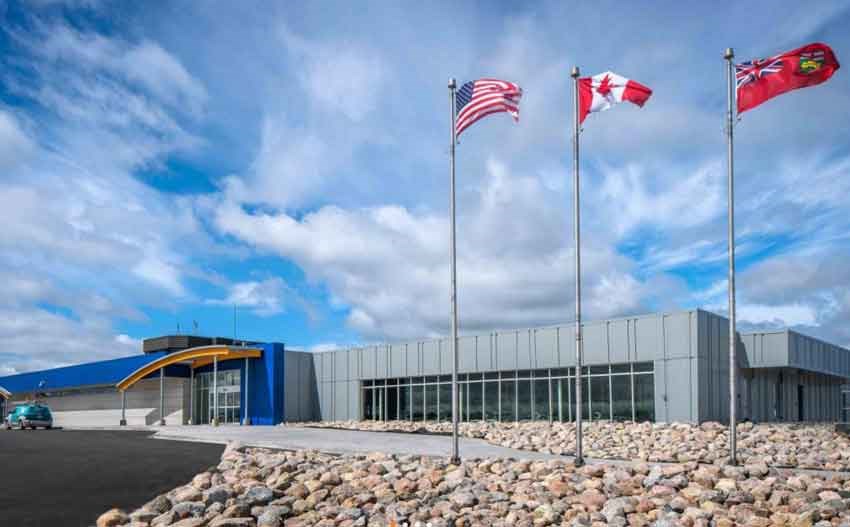SIOUX LOOKOUT — Employees at the municipal airport in Sioux Lookout are scheduled to receive training on how to spot human trafficking.
The airport has partnered with #NotInMyCity, an organization founded and led by Canadian country musician Paul Brandt, that aims to combat human trafficking and sexual exploitation. The partnership with the Sioux Lookout Municipal Airport “will include staff involvement in learning and training courses to identify the signs of human trafficking, and awareness campaigns throughout the organization,” according to a media release from the airport.
Doug Lawrance, Sioux Lookout’s mayor, said it’s an important initiative, given how busy the local airport is, and the vast expanse of northern communities it serves which overwhelmingly rely on air travel for access.
“The airport at Sioux Lookout is an extremely busy airport for a small town,” he told Newswatch in an interview. “There's a vulnerable population that comes and goes and, as we all know, there are predators out there who are doing bad things with vulnerable people.”
“This is a way to try and limit … the bad things and protect vulnerable people.”
The airport’s release quoted airport manager Ben Hancharuk as saying the organization is “happy to add our support to their growing network of airport partners. Every opportunity to reduce or prevent sexual exploitation and trafficking is one we need to take advantage of.”
The #NotInMyCity initiative has already partnered with the Thunder Bay International Airport, according to a media release issued in 2022.
The Sioux Lookout airport’s release said that human trafficking is one of the fastest-growing crimes in the country, with 93 per cent of victims being trafficked domestically. Cases often go unnoticed or unreported, for a variety of reasons.
According to human trafficking experts, while it is often described as an abduction, trafficking is much more commonly a calculated situation, where the trafficker uses tools like psychological and emotional manipulation to control a victim.
A #NotInMyCity feature, written by Karly Church, a survivor of sex trafficking, on common myths and misconceptions about human trafficking says many victims are vulnerable young people, that most traffickers are known to the victim and that those being exploited often won’t ask for help.
In a 2018 submission to the federal standing committee on justice and human rights, the Native Women’s Association of Canada said that “Indigenous women are especially overrepresented,” citing 2016 data that showed, while Indigenous women only make up four per cent of Canada’s population, they roughly make up 50 per cent of trafficking victims.
“#NotInMyCity is proud to partner with Sioux Lookout Municipal Airport in the fight against human trafficking and sexual exploitation,” Brandt was quoted as saying in the airport’s media release. “We all have a voice and the power to share the message that child sexual exploitation and trafficking is wrong and won’t be tolerated.”
Lawrance said public awareness initiatives like this, as well as advancements in technology, can help.
“We've been enhancing our (closed circuit television) coverage in the municipality over the last few years, using victims-of-crime assistance grants and other such things — cooperating with the police,” he said.
“I think (human trafficking) is a terrible thing and anything we can do to limit it, and especially when we can collaborate with other regional communities and First Nations, we're happy to do so.”
